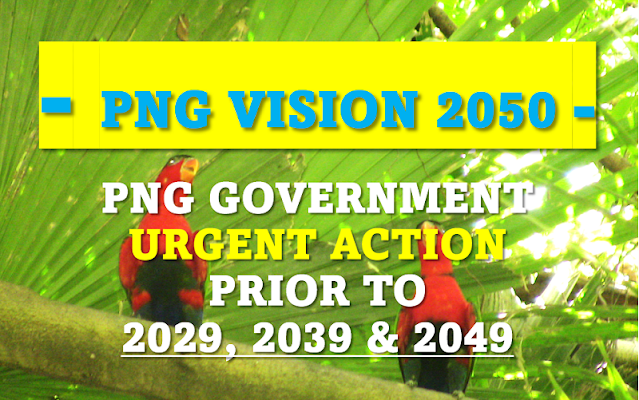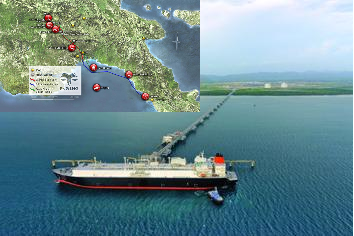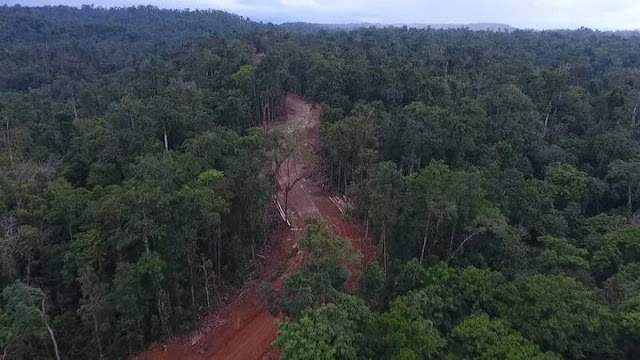PNG Vision 2050
Introduction
Papua New Guinea (PNG) Vision 2050 is a long-term development plan that aims to transform the country into a smart, fair, and prosperous nation by the year 2050. The vision was launched in 2009 and has been updated in 2016, with a strategic focus on creating a sustainable economy, society, and environment.
Mission and vision
The mission of PNG Vision 2050 is to create a society that is smart, fair, healthy, wealthy, and happy. It seeks to transform the country by leveraging its rich natural resources and human capital to achieve:
- Sustainable economic growth
- Social development
- Environmental protection
- Strategic visions

PNG Vision 2050 Strategic Visions
PNG Vision 2050 identifies eight strategic visions that the country should focus on to achieve its long-term development goals:
1. Human capital development: To create a highly educated and skilled workforce that is productive, innovative, and globally competitive.
2. Wealth creation: To promote sustainable economic growth by leveraging the country's natural resources, developing industries, and creating job opportunities.
3. Institutional development: To build strong and effective institutions that promote good governance, accountability, and transparency.
4. Infrastructure development: To develop modern and efficient infrastructure that connects the country's regions, promotes economic growth, and enhances the quality of life of its citizens.
5. Environmental sustainability: To protect the country's rich biodiversity and natural resources by promoting sustainable development practices.
6. Security and stability: To ensure peace, security, and stability in the country, promoting social cohesion and a sense of national identity.
7. International participation: To engage actively with the international community and promote Papua New Guinea's interests in the global arena.
8. Spiritual, cultural, and community development: To preserve and promote the country's diverse cultures, traditions, and values, and strengthen the sense of community and national identity.
Urgent actions to meet PNG Vision 2050
To achieve its long-term development goals, PNG needs to take urgent actions in various areas. These actions include:
Strengthening institutions:
PNG needs to build strong and effective institutions that promote good governance, accountability, and transparency.
Investing in human capital:
The country needs to invest in education and training to develop a skilled and productive workforce that is globally competitive.
Developing infrastructure:
PNG needs to invest in modern and efficient infrastructure that connects the country's regions, promotes economic growth, and enhances the quality of life of its citizens.
Promoting environmental sustainability:
PNG needs to adopt sustainable development practices that protect its rich biodiversity and natural resources.
PNG Vision 2050 achievements and the road ahead
PNG has made some progress towards achieving the goals of Vision 2050 in the past decade.
From 2009 to 2019, the country achieved an average annual economic growth rate of 2.7%, reduced poverty from 39% to 37%, increased the literacy rate from 60% to 63%, and expanded access to basic services such as health and education.
Recently, the ADB economic forecast for PNG shows that the country's GDP is expected to grow by 3.5% in 2022 and 4.9% in 2023 and inflation rates forecasted at 6.5% in 2022 and 5.1% in 2023
Address challenges immediately
Despite ADB's positive forecast for 2023, much more needs to be done before 2029, 2039, and 2049 to achieve the goals of PNG Vision 2050 fully.
The country needs to address challenges such as
- corruption,
- inadequate infrastructure,
- low human capital, and
- environmental degradation.
Papua New Guinea's government must continue to invest in its people and infrastructure, promote good governance, and work towards building a sustainable future for all its citizens.
Medium-Term Development Plan and Actions
The PNG government has recognised the importance of Vision 2050 and has outlined a Second Medium Term Development Plan for 2018-2022 to help achieve its goals.
The plan prioritises the development of infrastructure, education, healthcare, and the private sector, with a focus on improving the livelihoods of the rural population and promoting inclusive growth.
Moreover, the government has launched various initiatives to support the realization of Vision 2050. For example, the National Development Bank of PNG provides loans to support small and medium-sized enterprises, and the Tuition Fee-Free policy has increased access to education for many children in the country.
Despite these efforts, the country still faces significant challenges. For example, PNG has one of the lowest human development indexes in the world, and poverty remains a significant issue, with over a third of the population living below the poverty line.
PNG Government Urgent Action Prior to 2029, 2039 and 2049
To address these challenges, the PNG government ( prior to 2029, 2039 and 2049) needs to continue
- investing in infrastructure, education, and healthcare, promoting good governance and accountability,
- developing sustainable economic models, and
- addressing issues such as climate change and environmental degradation, which pose significant threats to the country's long-term development goals.
Conclusion - PNG Vision 2050
PNG Vision 2050 provides a roadmap for PNG to achieve sustainable economic growth, social development, and environmental protection. While the country has made progress towards its long-term goals, much more needs to be done to ensure that Vision 2050 is fully realized.
Above all, the PNG government must continue investing in human capital and infrastructure, promoting good governance and accountability, and developing sustainable economic models to build a better future for all its citizens.

.jpg)
.jpg)

















